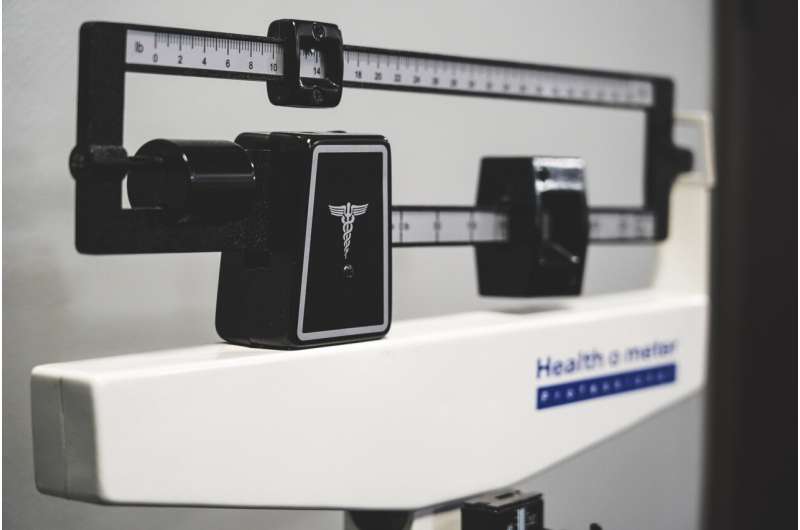Is Wegovy really a gamechanger for heart health? A consultant cardiologist gives his verdict

The weight-loss jab Wegovy has been hailed as an “absolute game-changer” after a new study showed that it relieved symptoms and improved the quality of life in people with a common form of heart failure.
The participants in the trial had “heart failure with preserved ejection fraction”, a very common condition in which the heart stiffens, leading to breathlessness, fatigue and fluid retention. It is very hard to treat and doctors mainly focus on alleviating the patient’s symptoms.
Many people with heart failure are obese, so the thought that a weight-loss jab might offer a new treatment for people with this condition is appealing. When a clinical trial of semaglutide (brand name Wegovy) for treating heart failure with preserved ejection fraction was presented at the European Society of Cardiology Congress this month, it was met with overwhelming enthusiasm.
In this trial, called STEP-HFpEF, 529 people with heart failure and obesity were randomly allocated to receive either a weekly self-administered injection of 2.4mg semaglutide or a placebo. Over a year, the participants receiving semaglutide lost 13.3% of their body weight compared with 2.6% in those receiving a placebo.
The extra weight loss from semaglutide led to improvements in the participants’ quality of life and very small improvements in the distance they could walk in six minutes (a standard test to assess aerobic capacity and endurance).
In recent years, we have become used to seeing clinical trials of semaglutide and similar therapies resulting in 10-20% weight loss, and these new findings continue the trend. The effect of this drug on weight, quality of life and exercise capacity is impressive, but there are a few other factors to consider.
STEP-HFpEF was a double-blind trial, meaning that neither participants nor their doctors knew whether they were receiving semaglutide or a placebo (this is done to prevent “bias” in a trial). However, those receiving semaglutide would have noticed weight loss after just a few weeks and be able to work out which arm they were in.
The measures chosen—quality of life and distance walked in six minutes—could easily be influenced by knowing whether you were receiving semaglutide or a placebo. The real test of semaglutide in heart failure will be whether it can change less subjective measures, such as the need to take diuretics (a standard treatment for heart failure), the risk of being admitted for heart failure or even death.
Participants in this study, 96% of whom were white, had relatively mild heart failure. Only a small proportion had ever been admitted to a hospital with heart failure, and just over half took diuretics (also known as water tablets). It is not clear if the findings of the study are specific to heart failure or are merely a consequence of weight loss. Most of us would report improvements in our quality of life and exercise capacity if we lost 10-15% of body weight.
What happens to patients once they stop taking these drugs? Most of the research so far suggests that patients put most of the weight back on. It’s hard to believe that the improvements in quality of life and exercise capacity would persist once the weight is back. The most likely scenario is that, for a sustained benefit, patients would need to take these drugs indefinitely. This is less appealing given the cost and limited availability of these drugs.
Cheaper alternatives
Even allowing for these limitations, the effect of semaglutide on weight loss in people with heart failure and obesity is undeniable, and it is likely to be a powerful treatment for certain patients. Until semaglutide is more widely available and affordable, we are going to have to keep reinforcing the cheaper alternatives of healthy diet and exercise.
The weight loss seen in the randomized controlled trials of various diets (typically less than 10% weight loss) is not as impressive as with semaglutide, and most patients have often tried several diets by the time they are seen in cardiology clinics or wards with heart failure.
The increase in exercise capacity (about 6%) with semaglutide in this trial was less impressive. With regular exercise, even without weight loss, much greater increases in exercise capacity can be achieved.
If your body mass index is greater than 30, irrespective of whether you have heart failure or not, don’t wait until you need semaglutide. Instead, change your diet and make exercise part of your weekly routine. A few simple lifestyle changes might have a massive effect on your health and your heart.
Provided by
The Conversation
This article is republished from The Conversation under a Creative Commons license. Read the original article.
Source: Read Full Article
